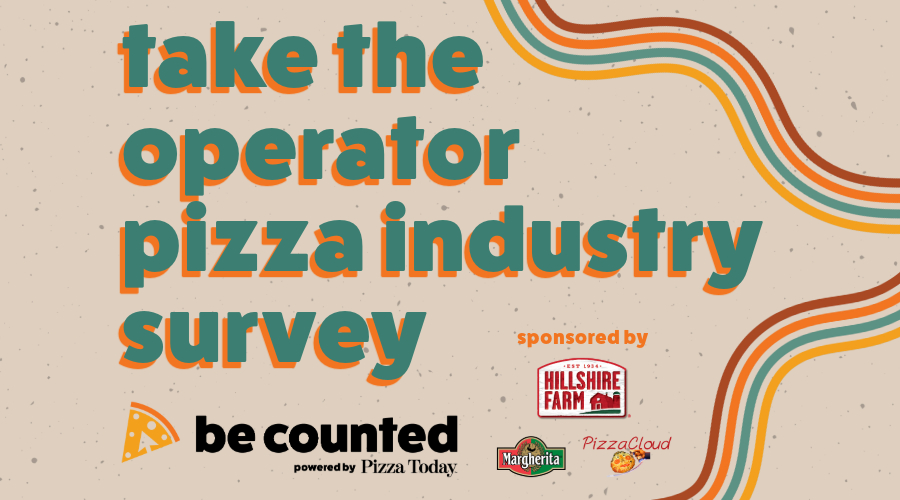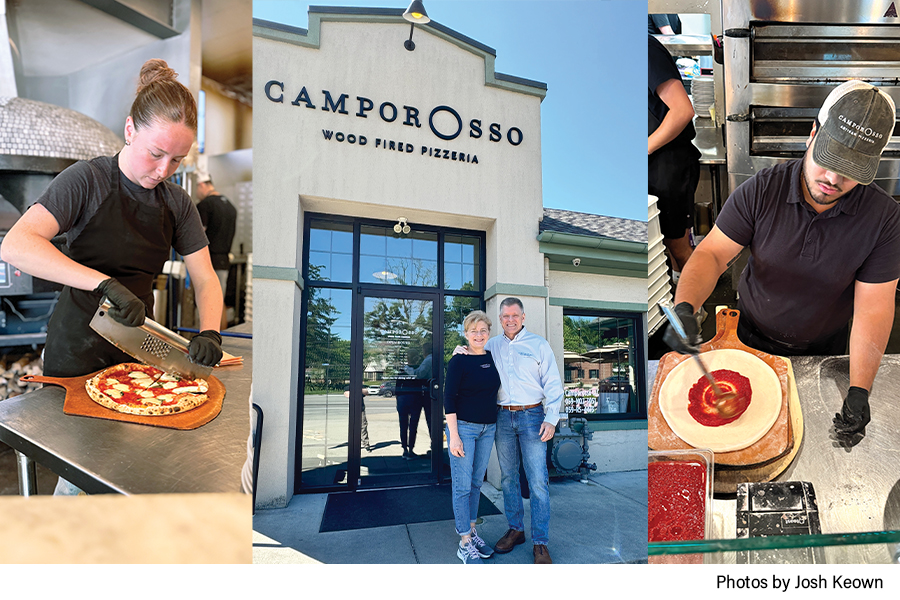Relationships are invaluable to a restaurant’s success.
 It is a no-brainer that the relationships between management and staff, staff and customer and restaurant and supplier need to be strong in order for a restaurant to keep its doors open.
It is a no-brainer that the relationships between management and staff, staff and customer and restaurant and supplier need to be strong in order for a restaurant to keep its doors open.
And relationships require work. They require communication and, sometimes, resolution. They require time and effort from both sides.
And most of the times, relationships require a contract, especially if operators want to prevent disasters or solve problems with their distributors or suppliers.
“In determining whether or not a supply agreement is required with a particular vendor, consider their historical performance, the value of business you do with them, as well as how easily you would be able to locate an alternate source in the event this relationship ends suddenly,” says Devon Smiley, a negotiation coach and consultant in Montreal, Canada. “The more reliant you are on a vendor, and the fewer high-quality options exist in your market, the more important it will be to have an agreement in place.”
If the idea of creating a contract is overwhelming, operators need not stress. Chances are, they may be better versed than they think.
“Whether or not operators know it, they almost always do have ‘supply agreements’ in place with their suppliers,” say Sarah K. Rathke, a partner at Squire Patton Boggs (US) LLP in Cleveland. “The reason is that any written communication –– a purchase order, an order form, an order acknowledgement –– that arranges a purchase constitutes a ‘contract’ under the law of contracts and is enforceable. Therefore, no matter what form the written communication takes, it is important to recognize that it most likely is contractually binding, and to make sure that it contains all the terms you need to protect your interests.”
Although an agreement’s form can vary, it should always cover a restaurant’s best interest.
“If you are worried about the price of a particular ingredient or supply increasing to a point that it threatens your business, you will want to lock in prices for as long as possible in the supply agreement/purchase order,” Rathke says. “The form the agreement takes is not as important as that it contains all of the protections you need. What operators need to ask when negotiating a supply agreement is: ‘What is important to me? What are my business needs? What are the risks that I am most worried about? And how do I protect myself from those risks?’ ”
Whether or not operators are comfortable with contracts, there is always room for improvement when negotiating terms of an agreement.
Ryan B. Opel and Jonathan T. Hasebe with the law firm of Gallagher & Kennedy in Phoenix offer these seven tips to keep in mind when negotiating a supply agreement or contract:
- Don’t ignore the fine print. Too often, buyers focus solely on the pricing terms of a contract. Make sure you understand your entire contract before you sign it, especially those dreaded “boilerplate” provisions.
- Seek pricing stability. Supply agreements often provide an opportunity to achieve long term pricing stability. Beware of price fluctuation clauses, especially automatic price increases that can be triggered without your consent.
- Carefully describe what you are buying and include warranties that back it up. Make sure the contract carefully describes your products, specifying the exact nature, type, quality and condition of the goods you are buying with as much detail as possible. Then make sure your supplier backs it up with a warranty that, at the very least, promises that the goods sold will conform to those precise specifications.
- Beware of disclaimers and other efforts to minimize supplier liability. Smart suppliers go to great lengths in their supply agreements to minimize and even eliminate their liability with disclaimers, limitations and clauses. Be on the lookout for these clauses and don’t be afraid to haggle.
- Be prepared for disputes. A good supply agreement will have a detailed dispute resolution clause that dictates the method for resolving disputes, the location where dispute resolution will take place and the rules of law that will govern the dispute. Think carefully about which method of dispute resolution is best for your restaurant business and focus on location.
- Have an escape clause. When supply relationships do not work out, carefully review the term and termination provisions of your contract. Try to negotiate appropriate ways to terminate your contract early, both for convenience and for cause.
- Remember that you are not alone. Do not hesitate to consult your trusted professional. Supply agreements are often lengthy and intimidating legal documents. Done well, a supply agreement can provide invaluable benefits by promoting stability and limiting risk.
Finally, sign with a supplier or distributor whose reputation of quality and success precedes them.
“You need to ensure that the relationship will last long enough to become maximally profitable, and to do that, you need to be sure that the distributor has the qualities and resources needed to perform its part of the deal. You should ask for financial statements sufficient to give you comfort that they can weather any ramp-up period with you or any down times without negatively impacting your business,” Rathke says.
Mistakes inevitably will happen, and Smiley advises using them to your advantage.
“I encourage operators to review their past six month’s performance, and highlight any areas of their supply chain that fell short of expectation –– late shipments, slipping quality, onerous payment terms, etc.,” Smiley says. “Each of these pain points, no matter how small, represents a potential feature in their new supply agreement. Learning from past frustrations and including coverage for those situations in future agreements helps ensure smooth operations.”
For relationships to last, they cannot be entered into lightly or quickly. By doing their homework, finding the right supplier to work with, and negotiating a contract that protects in detail their business interests, operators will ensure a relationship of success.
DeAnn Owens is a freelance journalist living in Dayton, Ohio. She specializes in features and human-interest stories.







